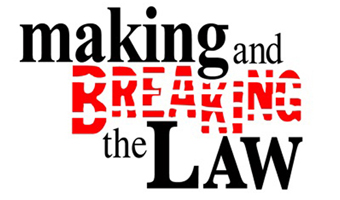The Center for Law, Justice & Culture announces its Critical Resistance event series for 2016-17: Struggles for Access to Justice.
This Critical Resistance series considers how social inequalities of race, class, and gender create a “justice gap” of differential access to legal processes and justice institutions, for juveniles and adults.
Through the series, the center will focus on U.S. legal structures and judicial systems as well as international justice institutions.
 The Struggles for Access to Justice (#S4A2J) series is carried out in collaboration with Students for Law, Justice & Culture and the Making and Breaking the Law theme at Ohio University.
The Struggles for Access to Justice (#S4A2J) series is carried out in collaboration with Students for Law, Justice & Culture and the Making and Breaking the Law theme at Ohio University.
The events will provide opportunities throughout the semester for student-faculty collaboration, interdisciplinary dialogue, and critical reflections on the challenges and opportunities of access to justice in the 21st century, in the U.S. and internationally.
The Challenges of Access to Justice
Many Ohioans, and many U.S. citizens more generally, do not believe that the justice system is accessible to them.
Barriers to justice include cost, language, proximity and just plain lack of knowledge about the courts and overall system of justice.
American bar studies have estimated for decades that four-fifths of the individual legal needs of the poor and a majority of the needs of the middle classes remain unmet—figures that have escalated in recent years through high rates of unemployment, bankruptcies, foreclosures, and reductions in social services.
This means that over 80 percent of the civil legal needs of the poor go unmet because people cannot afford a lawyer—or even know that they need one.
Contemporary Initiatives
This is a critically important issue in law and justice studies, nationally and statewide.
In 2010, the U.S. Department of Justice established the Access to Justice Initiative to address this problem.
In 2011, legal academics associated with the American Bar Foundation and the Harvard Program on the Legal Profession established the Consortium on Access to Justice to promote research and teaching this critical rule of law issue.
In spring 2013, the NSF Law and Social Sciences Program issued a call for research proposals focusing on Access to Justice, specifically the use and functioning of the civil justice system.
In 2014, the Supreme Court of Ohio and the Ohio Judicial System initiated a Task Force on Access to Justice “charged with identifying gaps in and obstacles to accessing the civil justice system in Ohio; reviewing entities established by other states to address access to justice issues; and determining whether the creation of a Supreme Court operated or affiliated entity focused upon access to justice would assist in resolving the gaps in accessing the civil justice system.”
The Task Force report and recommendations were released at 2015 Ohio State Bar Association Annual Convention, which had the theme of Access to Justice.
The center welcomes any suggestions for speakers, events, or other programs relating to this theme. Please contact CLJC Director Haley Duschinski or CLJC Pre-Law Specialist and Advisor Larry Hayman for more information.



















Comments